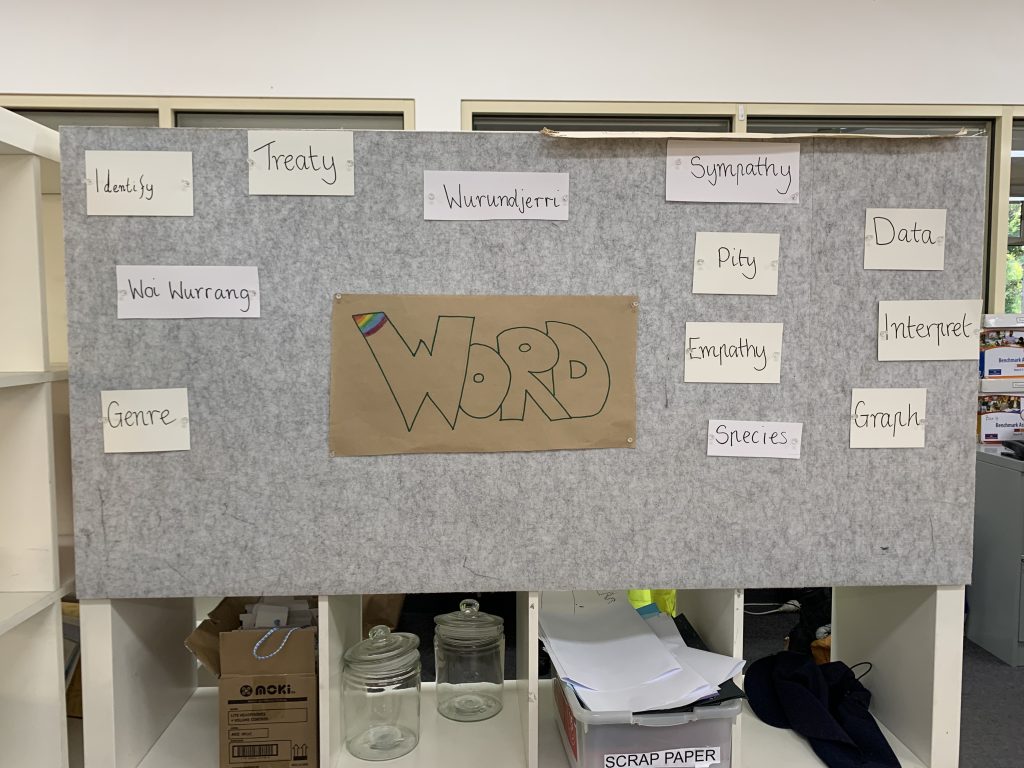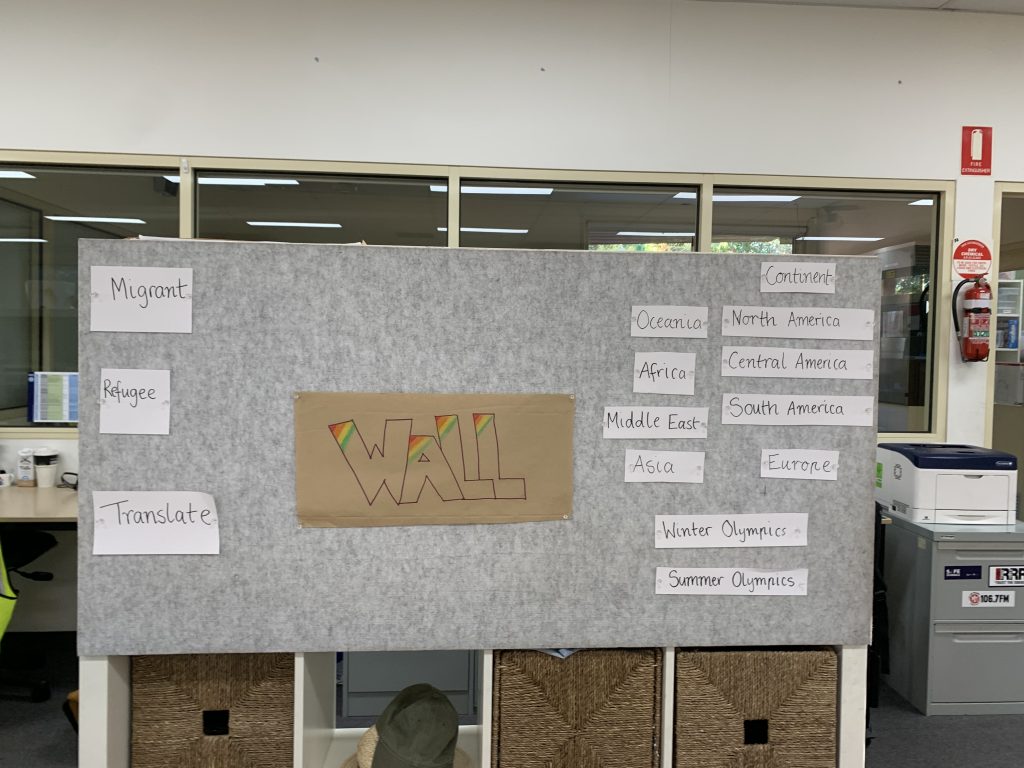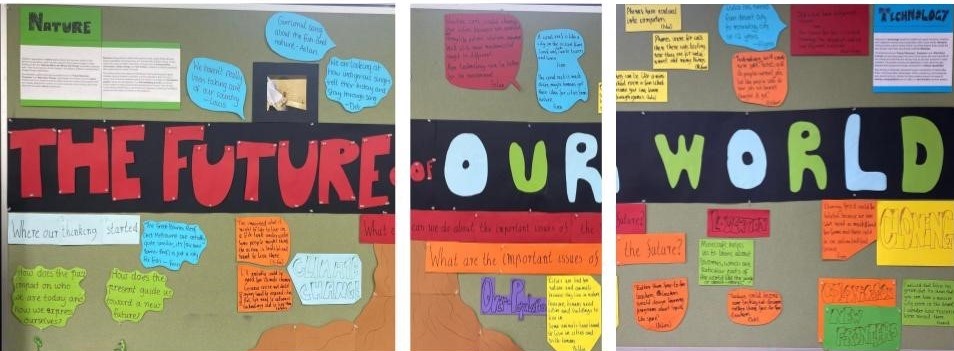This Monday is Harmony Day and this presents us with a context to explore diversity, inclusion and belonging. We will explore the question, ‘How are values of diversity, inclusion and belonging expressed?’
Our provocations related to change and the past, present and future remain. We hope to make connections between these and the new thinking provoked by Harmony Day.
Harmony Day
Provoked by Harmony Day on Monday, children will engage with a range of experiences to explore and identify how the values of belonging, diversity and inclusion can be expressed and enacted in our everyday lives. They will explore the values through language, illustration and performing arts. Children will also be encouraged to organise presentations for the Harmony Day Assembly on Friday.
Ahn’s Story
Children will explore different perspectives of Ahn’s story before writing a letter to Ahn, or stepping into her shoes and writing an entry into her diary from the day of her story. Children will be challenged to show empathy and an understanding of diversity, inclusion and belonging in their responses.
Hi. I’m Anh.
It’s not often I ask myself who I really am, but that’s what I’m doing right now.
We’re going to have a day at school where we have to wear clothes and bring food to celebrate who we are and where our families are from.
Well, I was born here and so were both my parents. So I was thinking that I’d wear shorts and take some lamingtons. And celebrate being an Aussie: that’s who I am!
But tonight my bà made my very favourite dinner: I call it ‘magic noodles’ and that makes her smile. Bà often looks really sad so it’s good when she smiles. Her mother taught her to make the noodle soup in Vietnam; but she couldn’t make it for a many years because her life was very hard. And when she first got to Australia, she couldn’t buy the things to make it taste like it should.
But now there are lots of Vietnamese shops here. And I go with Bà when she buys the spices and incense that she has always loved.So, I am an Aussie. But I love ‘magic noodles’ and it would make Bà so proud if I took them to school. I’m thinking that I really do have a special story to share about who I am and where my family is from.
Quotes of Change
For this provocation, children will respond to quotes about change that have come from their peers. They will be asked, ‘What do these quotes about change inspire you to think about?’. Children will be encouraged to draw and discuss their responses.
“Change can be everywhere and in everything. There is barely anything that hasn’t changed in any way.” (Esther)
“Change can be a cycle.” (Louis)
“Major worldwide events, like COVID-19, cause us to change the way we live our lives. Like now, we do online shopping.” (Elspeth)
“It’s something you haven’t done in the past, but might be about to do a lot in the future.” (Lulu)
Finn- “Change is evolution, which is things getting better and adapting to their environment.”
Rohan- Change and evolution can also be caused by advances in technology.”
Finn- “Change and evolution are constant, like climate change.”
Colours of Change
Children will be provoked to think about colour, change and our inquiry by choosing and experimenting with 3 colours to depict their emotional response to change. They will experiment with the 3 chosen colours using paint and pattern.
Building Our Glossary
Year 2 children have shown a keen interest in understanding new words as they arise. Some of these words relate to our inquiry while others describe learning processes. This provocation allows children to utilise and enhance dictionary and thesaurus use, as well as Chalk Talk to explore and ultimately define these words in their words.


Researching?
Children have been motivated to research topics of interest that are connected to our inquiry. As modelled while we watch BTN, children will develop their research skills by recording keywords and facts that they discover as they research.
Evolution of Machines and Cities
Inspired by electric cars, children have begun to think about how machines have changed, machines of the future and how they (may) change needs within a city plan. Possibilities with this provocation include the invention and design of future machines, timelining the evolution of a current machine as well as planning and building a city that is adapted to the machine’s popularisation.
Maps of the World
Children will be invited to explore a range of maps, including Google Maps, in order to understand and value how a map can help us interpret the world. As they progress, children will be encouraged to research further into places and points of interest as well as create their own maps to show their learning.
Industry Planning
For this construction based provocation, children will be challenged to consider how the inclusion of an industry can influence the planning of a town, city, precinct or suburb. For example, the inclusion of a popular entertainment industry may require public transport, restaurants, theatres and performing arts schools.
Graphs of The World
Children will be presented with a range of graphs that represent data about our world, including population, language, and geography. They will be challenged to interpret data from the graphs, and record and compare statistics about the world.
Letters to the Past
As children continue to explore differences between the past, present and potential future, they will be provoked to write a letter from the present or future to someone in the past. The letters will describe how aspects of life have changed, presenting children opportunities to learn about perspective.
Found In Our World
Inspired by Found In Melbourne, by Joanna O’Callahan and Kori Song, children have become interested in landmarks from around the world. They have begun researching many landmarks with an aim to define, ‘What is a landmark?’, identify them, and learn about their cultural significance. Children have considered many ways of presenting their research including brochures, guides and maps.
Family Tree
Children will research, draw, timeline and write about their own family history searching for and articulating changes and interesting stories that show how the past’s impacts have influenced us today.
